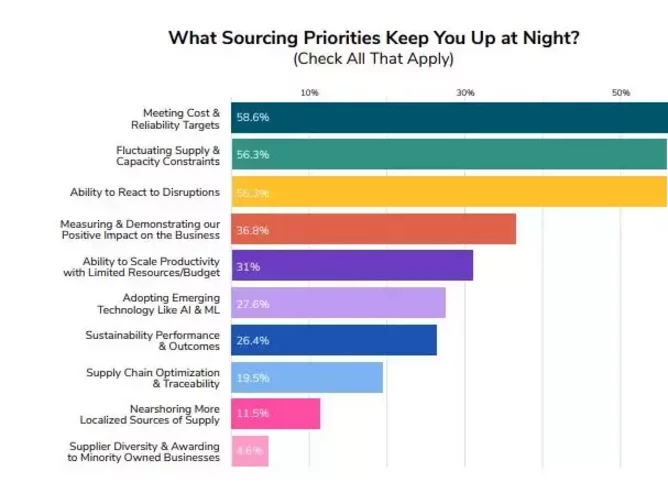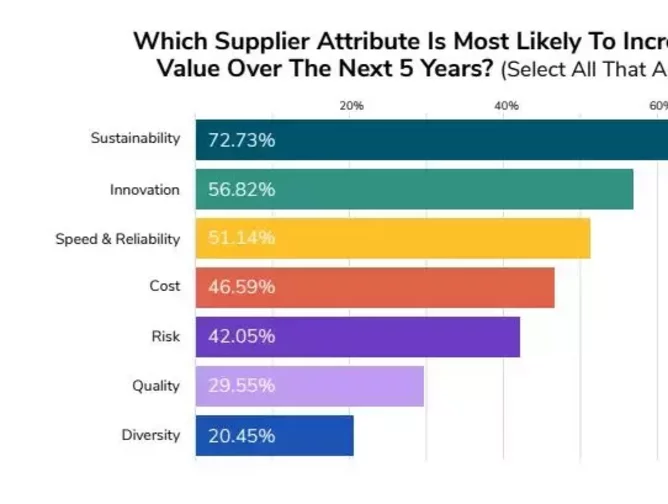Keelvar research highlights the priorities in procurement

Keelvar - a leading global provider of intelligent sourcing optimisation and automation - has debuted its first annual ‘Voices of Sourcing’ report for 2021.
Analysing worldwide challenges and priorities amid the ongoing global supply chain disruptions, Keelvar found that for 90% of executives in sourcing and procurement, managing supply chain issues ranged from ‘very important’ (68%) to ‘somewhat important’ (22%%).

The top three challenges for procurement executives include:
- Cost and reliability targets
- Fluctuating supply and capacity constraints
- The ability to react to disruptions
As a result, procurement functions have shifted their sourcing strategies, speed and reliability are now on par with cost when it comes to key supplier attributes.

“Today’s bottlenecked supply chains are causing delays and shortages like we’ve never seen before. Procurement leaders are facing severe capacity and labour limitations, a spike in cancelled contracts, supplier risk and more while trying to balance priorities like sustainability and reliability. With complexity at an all-time high, organizations must have the ability to make quick sourcing decisions to ensure continuity and resiliency. Keelvar’s agile sourcing solutions are helping our global customers navigate through the many pressures revealed in this data,” said Alan Holland, founder and CEO of Keelvar.
Other key findings: Sustainability, Growth, Technology
Over the next five years, sustainability is expected to increase in its value, becoming a top sourcing priority. So much so that it will outrank quality, innovation, and cost. Despite this, only 32% of procurement executives currently rank sustainability as ‘very important’; 65% report that justifying potential cost increases associated with sustainability continues to be a roadblock.
Year on year, procurement executives report that in the last 12 months their teams have ‘significantly’ or ‘slightly’ grown (35%) in spite of tightened budgets and higher manufacturing and logistics costs. Over half of executives predict that their sourcing teams will continue to grow in the next five years, which correlates with procurement’s growing strategic importance within organisations.
Despite this positivity, many organisations are yet to fully adopt modern sourcing technology to manage the growing complexity. Almost 25% of respondents predominantly rely on manual processes and spreadsheets, even though 99% agree that parts of sourcing should be automated.
To read the full report, click here.






